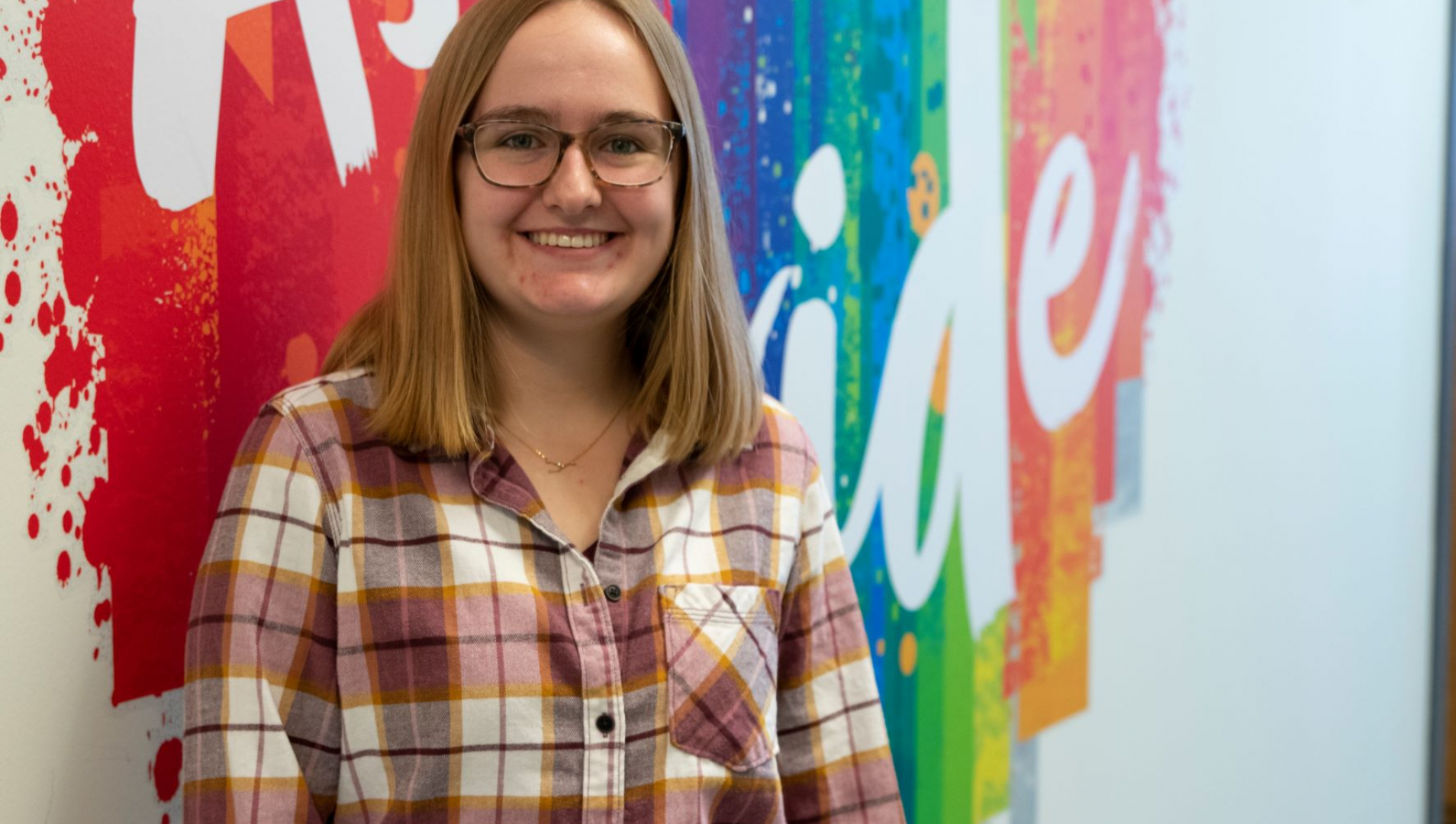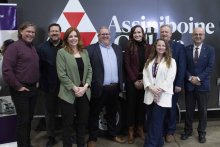Callista’s Journey: A natural progression in ag and environment training
June 9, 2022
Callista Hall’s love of science brought her to the Land and Water Management program at Assiniboine Community College, and her desire to learn and enhance her resume drove her to pursue further knowledge and training with an advanced diploma in Geographics Information Systems (GIS).
The GIS advanced diploma program offered Hall so much more than she expected to learn, she said, and left her even more confident in her education.
While attending high school in Virden, Hall said her biology teacher—who had a specialization in environmental science— talked a lot about her career before becoming a teacher.
“I always found that very interesting,” said Hall. “I remember attending a career symposium and I talked with an instructor about the Assiniboine Land and Water Management program, and that convinced me to look into the program further. I liked the idea of learning by doing, and being in Brandon, Assiniboine was close to home.”
In the first few days of attending the college, Hall said the program and the course load surprised her, but in a good way.
“It really got right into the course load. I didn’t get to choose my courses (in the program) but they were all courses I was interested in, so I was excited going to each class,” said Hall. “There was so much information I was learning and I enjoyed the lectures, taking notes and even the assignments — I was enjoying learning because it was something I was interested in.”
James Hood, an instructor at Assiniboine who taught Hall, described her as good student and a quick learner, with high expectations of herself and others.
“She’s very precise with her details …she doesn’t put herself in a situation where she will present incorrect information or information she hasn’t reviewed. So, if Callista says something, you can be pretty sure that it’s correct,” said Hood.
Despite COVID-19 forcing students to transition to online learning and navigate the challenges that arose from that, Hall decided to stay in school for one more year, pursuing an advanced diploma with the GIS program.
GIS is a technological field that incorporates geographical features with tabular data in order to map, analyze and assess real-world problems. It lets us visualize, question, analyze, and interpret data to understand relationships, patterns, and trends — a system that can benefit organizations in almost every industry.
Hall said she really enjoyed the Introduction to GIS class offered in the Land and Water Management program, and wanted to learn more.
“I wanted to do one more year. I liked school and I was thinking about … a way I could enhance my resume and make me look more desirable as an employee and stand out a little bit more,” she said. “It’s very relevant for the environmental industry. Now we’re using so much more technology along with our data collection…so I thought it would be a good thing to take.”
Hood said he was not at all surprised Hall decided to further her education with the GIS program, adding he would like to see more students pursue it.
I think it’s a natural progression. The Land and Water Management program gives you an introduction to the issues in sustainability and environmental conservation, and although it gives you an introduction to GIS, when you go through the advanced GIS program you gain so much more experience.
“It’s a really valuable tool that you can use in your future career. I think it’s an excellent second piece to studies here at Assiniboine.
The first few days in the GIS program surprised Hall, she said, as the course load was a lot heavier and fast paced.
“There was just so much to learn, it was so much bigger than I thought it was going to be,” she said. “There’s so many different tools to use, it’s more than just mapping. That’s what I learned— there’s data management and different ways you represent data and proper ways. Even just different ways to do it with different software, programs, servers.”
Steven Hills, a GIS instructor at Assiniboine, said the program is a challenging one that is technology heavy.
“Students need to know their way around a computer, they need to know file management, data management, be able to adhere to standards. They’re taking five courses at once, there’s a lot of juggling to do and it’s a lot of work,” Hills said. “If you’re curious, if you like technology, if you enjoy the discovery of things and seeing the bigger picture of things, GIS is a very interesting area to study or go into, just because it’s such a broad application base. The people who really excel in the industry are curious and aren’t afraid to ask questions and find more information.”
Callista Hall got a job with Matrix Solutions, working part-time while completing her advanced diploma and stayed on following her graduation in June.
“I’m happy with the education I have now,” Hall said. “The way our world is going, everything is revolving around technology, so (an advanced diploma in GIS) is a great thing to have. Even if you aren’t working directly in GIS, you’ll still have the benefits of learning how to do proper data collection and keeping records, because that is such an important part. It’s very beneficial and guaranteed you’ll use it.”




